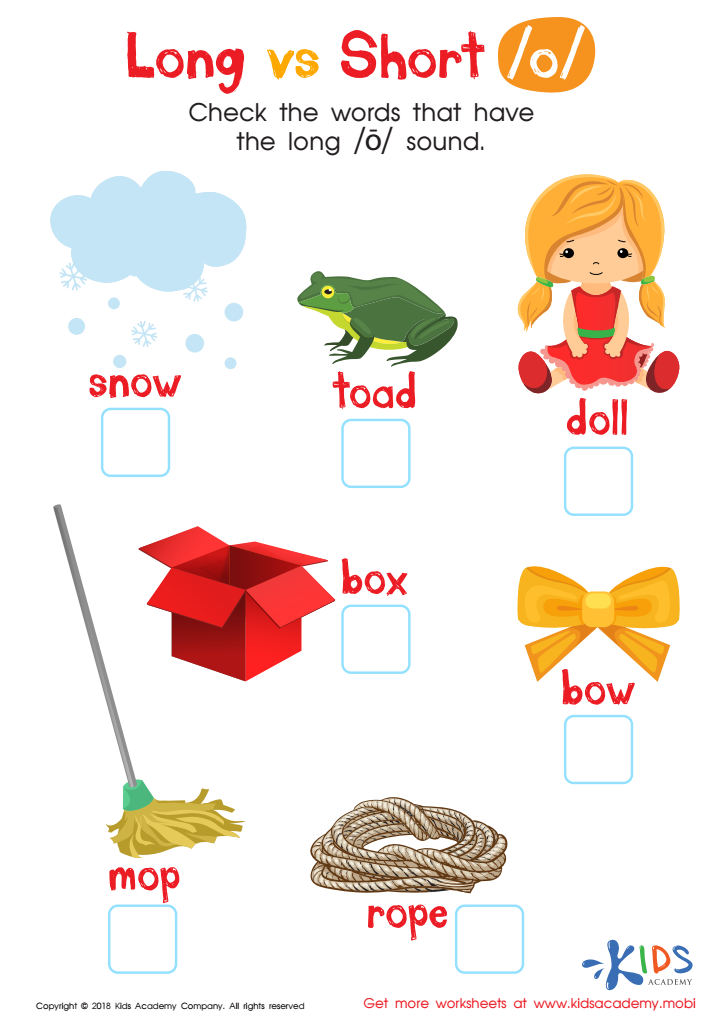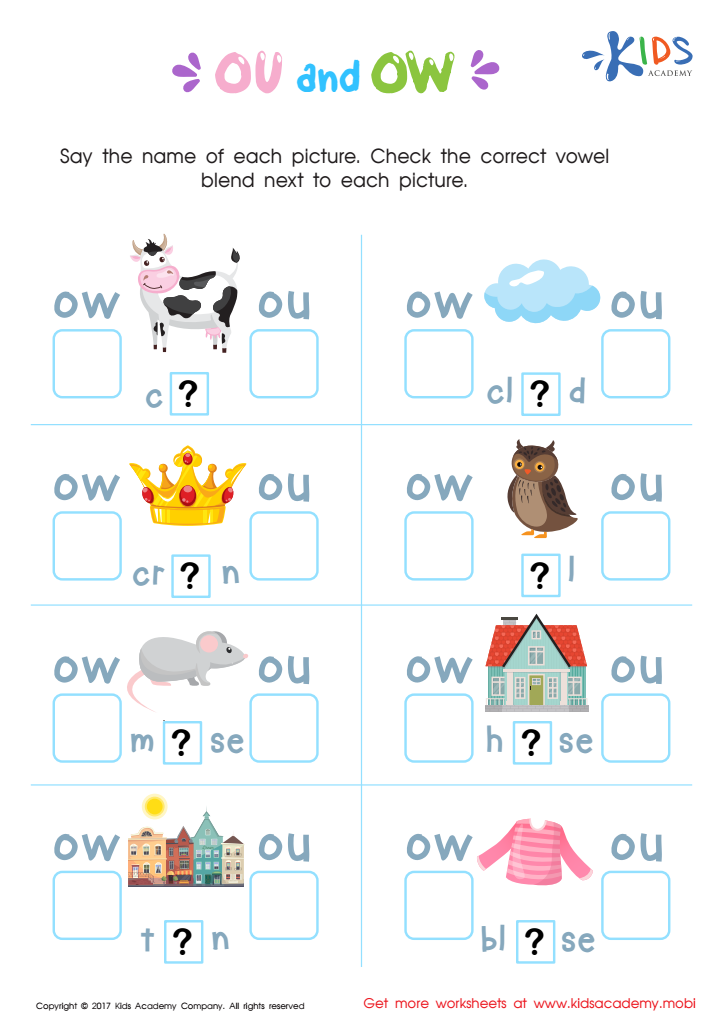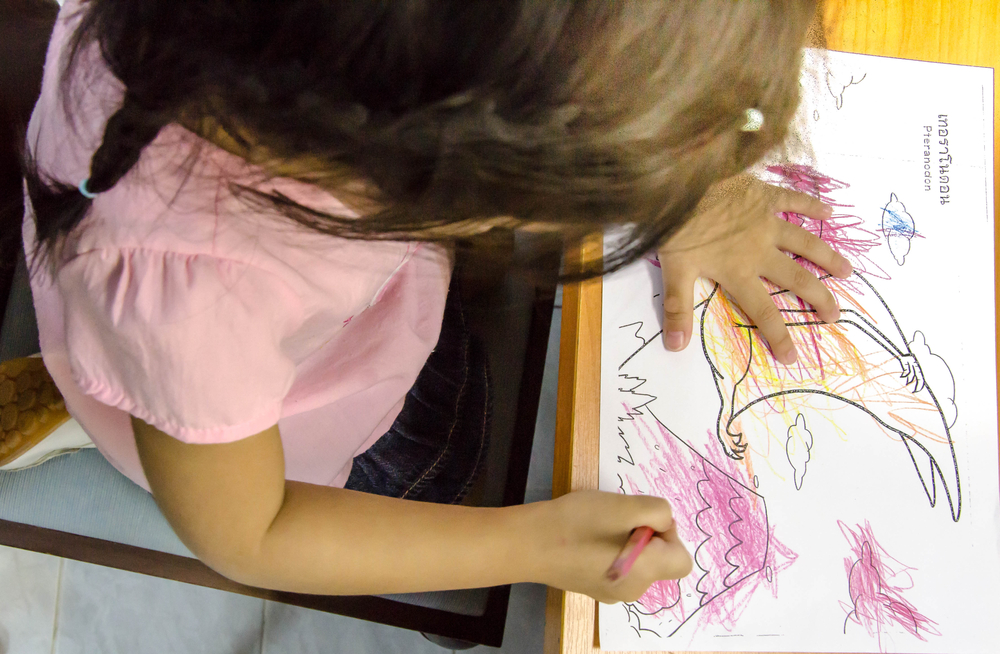Sound differentiation Normal Worksheets for Ages 3-7
3 filtered results
-
From - To
Discover engaging "Sound Differentiation Normal Worksheets for Ages 3-7" designed to enhance young learners' auditory skills. These interactive worksheets from Kids Academy help children identify, distinguish, and practice various sounds, fostering critical listening and early reading capabilities. Each activity is crafted by educational experts to be fun and educational, ensuring that children remain motivated and curious. Perfect for use in classrooms or at home, these worksheets provide a solid foundation in phonemic awareness, a cornerstone for literacy development. Start exploring today and watch your child’s confidence and skills flourish with our top-quality learning resources.


Long vs Short O Reading Worksheet


Long and Short Vowel Sentences: Assessment Worksheet


OU and OW Words Worksheet
Sound differentiation, or phonemic awareness, is the ability to hear, identify, and manipulate individual sounds in spoken words. This skill is crucial for young children, particularly between the ages of 3 and 7, as it forms the foundational basis for reading and writing.
For parents and teachers, understanding the importance of sound differentiation is essential because it directly impacts a child's literacy development. Learning to differentiate sounds helps children decode words, making it easier for them to read fluently and comprehend text. Research shows that strong phonemic awareness is a predictor of future reading success. Without these skills, children might struggle with reading, which can affect their overall academic performance.
Moreover, identifying and addressing difficulties in sound differentiation early on allows for timely intervention. This can prevent potential learning challenges related to reading disabilities such as dyslexia. Activities like rhyming games, clapping out syllables, and playing with letter sounds can significantly enhance a child's phonemic awareness.
Investing time in these skill-building activities supports a child’s ability to understand that words are made up of smaller, distinguishable sounds, aiding them in linking these sounds to letters and letter combinations. This not only bolsters early literacy skills but also enhances vocabularies, comprehension, and effective communication, setting a solid groundwork for future educational achievements.
 Assign to My Students
Assign to My Students















